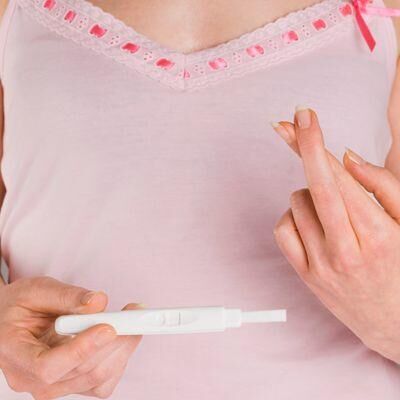All That Stress May Be Hurting Your Chance of Getting Pregnant, Study Finds
Stress is a part of life. But feeling super-stressed on a day-to-day basis raises a few red flags. And if you and your partner are planning on growing your family, your stress may be a huge roadblock standing in the way.
High levels of stress are associated with a lower chance of conception in women, a new study says.
Boston University School of Public Health used data from the Pregnancy Study Online (PRESTO), an ongoing preconception group that follows couples for 12 months or until pregnancy. For the study, the researchers observed 4,769 women and 1,272 men who did not have a history of infertility and hadn’t been trying to conceive for more than six period cycles.
The researchers measured an individual’s perceived stress scale (PSS), determining how unpredictable, uncontrollable, and overwhelming a person found her life. Individuals could rate their stress on a scale ranging from 0 (never) to 4 (very often), with 40 as the highest total. The questionnaires included information on each partner’s race, income, diet, sleep schedule, sex life and more. Both partners completed the PSS, and women also completed the PSS at each bi-monthly follow-up.
Overall, the PSS scores were about one point higher for women than men, and the average follow-up PSS scores among women remained pretty constant over the 12 months they participated in the study.
While women’s stress played a role in fertility, the same pattern was not apparent for men. The researchers found women with PSS scores of at least 25 were 13 percent less likely to conceive than women with PSS scores under 10. The association was also stronger for women under 35 years old.
Stress is second nature for most ladies, especially when you and your partner are struggling to get pregnant. Learn about a few ways to de-stress when baby-making plays a toll on your wellbeing.
Please note: The Bump and the materials and information it contains are not intended to, and do not constitute, medical or other health advice or diagnosis and should not be used as such. You should always consult with a qualified physician or health professional about your specific circumstances.
Navigate forward to interact with the calendar and select a date. Press the question mark key to get the keyboard shortcuts for changing dates.




















































